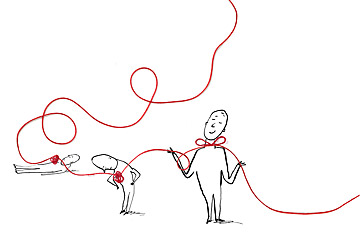
Philosophers and Poets, from their perch on the cutting edge of reason, have always seen the advantage of anxiety. It is the "dizziness of reason," argued Soren Kierkegaard; "the handmaiden of creativity," said T.S. Eliot; "the beginning of conscience," observed novelist Angela Carter. So have actors backstage, summoning eternal energies and edges for the roles they play, and sprinters on the block, finding hormonal springs in the fear of failure that allow them to achieve race times they never managed in practice.
But to the rest of us, when the race is to make it to dinnertime without losing our tempers, losing our jobs, losing our minds over the stresses we juggle, anxiety feels like no friend. Our days are filled with all kinds of personal reasons to get our adrenaline pumping and our minds churning, even before we start thinking about holiday gridlock, double-dip recessions, wars, terrorist threats and weather patterns.
"The presence of unpredictability, uncertainty and uncontrollability all provoke anxiety pretty automatically," says Sally Winston, co-director of the Anxiety & Stress Disorders Institute of Maryland (ASDI). "It's a signal of either an internal or an external threat."
Anxiety disorders--which include generalized anxiety, obsessive-compulsive disorder (OCD), phobias, panic disorder, social anxiety and posttraumatic stress disorder (PTSD)--are the most common mental illnesses in the U.S., affecting about 18%--40 million--of adult Americans. And adults aren't the only sufferers. Phobias and other clinical conditions can strike in childhood, and students applying to college, preparing for finals or entering a brutally tough job market have as many reasons to be anxious as their parents and grandparents do.
Excess stress hormones wear on the body, nipping away at the DNA that keeps cells dividing and long-lived, constricting the blood vessels and causing blood pressure to rise. Even the immune system is affected, as white blood cells that normally patrol for bacteria and viruses aren't produced at normal, disease-fighting levels. It's for these reasons that anxiety and stress have been linked to heart attacks, strokes, immune disorders, obesity, infertility and more.
There are effective psychotherapies for anxiety and plenty of meds that can help take the edge off. But if a share of Americans equivalent to the entire population of Argentina is still suffering, there's clearly a gap in our medical knowledge. The good news is, science is filling that gap. New scanning technology is revealing how anxiety plays out in the brain--the neurological byways that distinguish one kind of anxious reaction from another and the possible ways each can be stopped. Blood studies are exploring how the chemistry of anxiety drives the nature and severity of the condition. Gene mapping is telling the complex story of where anxiety sits on the genome, providing clues to who may be at greatest risk, which in turn could mean early intervention that could prevent misery later in life.
